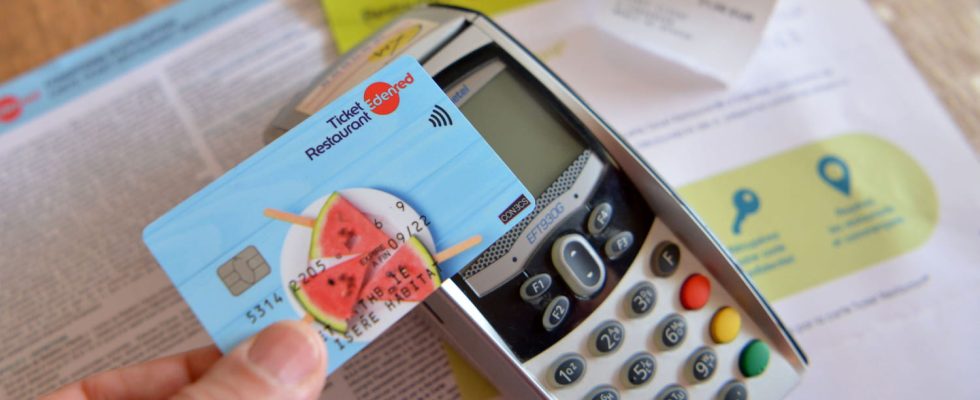Good news for the wallets of millions of employees: the amount paid on your meal voucher card may increase this year.
It is a payment habit for around 5 million French people. At the supermarket checkout or at the restaurant, before taking out the bank card to pay the bill, another card is presented: the restaurant voucher card. Whether you still use it in its paper version, card or, now, electronically on a smartphone, this kitty allows you to reduce the total you have to pay out of your pocket for a wider selection of food products. Every month, employees accumulate money on this precious card, paid in part by their employer and supplemented by a deduction from the employee’s salary.
Good news: in 2024, your employer could decide to increase its contribution to meal vouchers, without it costing too much. Until then, he could pay up to €6.91 per ticket and per employee without paying charges. Beyond that, social security contributions had to be paid. Since 1er January, this ceiling increased to €7.18. Thus, this increase of 27 cents would only cost €5.40 more per month per employee for 20 restaurant vouchers. Annually, this represents less than €65 per person per year.
If your employer’s contribution is below this ceiling, any increase will not cost them more than the money paid directly to you. A boss deciding to increase his share from €5 to €6 per employee will really only cost him one euro more per ticket and per employee.
Be careful, however: the company is not the only one to fund this kitty. The money accumulated on the meal ticket card must respect a certain balance: the employer can only finance 50 to 60%. The rest is the responsibility of the employee. So, depending on how much it might increase, you too might have to put your hand in your pocket a little. In the same proportions if the financing is 50-50, or less if the company’s participation is higher.
For example, an employee benefiting from a meal ticket of €8 (the average amount), paid 50% (€4) by him and 50% (€4) by the employer could see his boss increase it to €10. Either the company decides to do it in the same proportions (1€ each) and the employee will earn 20€ more per month, or the company decides to take this increase on its own, allowing its employee to earn up to €40 more per month if she pays 60% of the value of the ticket.
But multiplied by the number of days worked and the number of employees, it is not certain that companies will make such increases. More limited increases, around 50 cents, are more possible.
